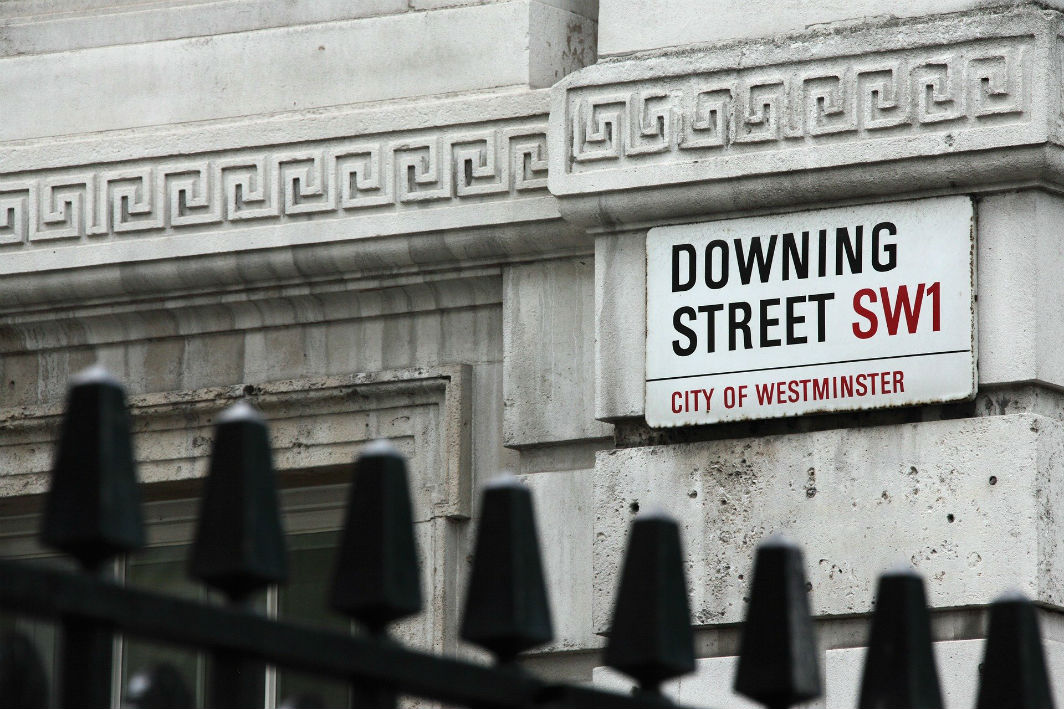How green was our budget?
Chancellor Rishi Sunak’s first budget was, as expected, focused on the immediate threat of coronavirus and the likely impact that the outbreak of the disease will have on our economy. But did his budget address the less headline-grabbing crisis that is climate change? And will the measures he outlined get us on track to meet our target of net zero emissions by 2050?
Carbon capture and storage
We recently wrote that although carbon capture and storage (CCS) technology is expensive, it is essential for reaching the net zero target, so much more investment is needed. This budget acknowledges that need with the introduction of a new Carbon Capture and Storage Infrastructure Fund. However, this is only intended to establish CCS in “at least two UK sites”, which is nowhere near enough.
The budget report refers to establishing CCS in “at least two UK sites, one by the mid-2020s, a second by 2030”. It is possible that the first site referred to is the Acorn Project site in north-east Scotland, which is already in progress (thanks to support from an EU-funded innovation programme). So the “new” CCS Infrastructure Fund may end up funding only one entirely new CCS project.
Energy
The new budget introduces a Green Gas Levy, designed to “accelerate the greening of the gas grid” by supporting the gradual replacement of natural gas with biomethane. The existing Climate Change Levy will be increased on gas and frozen on electricity, to “encourage businesses to operate in a more environmentally friendly way”. It is not yet clear whether the “new” Green Gas Levy will be rolled into the Climate Change Levy or be a separate tax, and it’s not clear either what the sums involved will be.
The budget also promises to double the size of the Energy Innovation Programme, which funds the development of new clean energy technologies and processes. But there is no mention of any new schemes or subsidies to encourage the generation of renewables from well-established sources. It seems that, as we predicted in our pre-budget analysis, falling generation costs have made this seem unnecessary.
Housing
The changes to fuel levies may have been done with a focus on business, but they will of course alter what kind of fuel is supplied to our homes through the National Grid. We won’t notice any difference, but homeowners may benefit from the new Low Carbon Heat Support Scheme, which will fund heat pumps and biomass boilers.
Of course, not all households in the UK are connected to the Grid. Heat networks, otherwise known as “district heating”, are a more efficient alternative to each household having its own boiler; one centrally located installation generates heat for a whole district. They first became popular in the UK in the postwar building boom, but many older heat networks have a high-carbon heat source. So it is very welcome news that the budget offers £270 million of new funding to enable heat networks to adapt to low carbon sources. The existing Heat Networks Investment Project will be funded up to 2022.
However, the Chancellor has missed an open goal by failing to announce any measures to improve the energy efficiency of our housing stock. Only a tiny proportion of our homes (a fraction of 1%) get an “A” rating for energy efficiency. The Committee on Climate Change estimates that the UK has six million homes where cavity wall insulation could be installed cost-effectively, and for four million of these it would be “easy”. Making our heating sources greener is a big step in the right direction, but we could be driving down energy use through better insulation of our homes at the same time.
Vehicle emissions
We pointed out in our pre-budget analysis that freezing duty on petrol and diesel has cost the Treasury billions of pounds since 2011. Leaving aside the impact on our national carbon emissions, you might expect the new Chancellor to have other ideas on what to do with that money. However, as we also pointed out, increasing duty is a politically unpopular move, and this people-pleasing budget decided to keep it frozen. Jonathan Bartley, co-leader of the Green Party, tweeted: “By a quick calculation, the freeze in fuel duty will amount to 0.5 million tonnes more carbon this year – that’s equivalent to over 150,000 long haul flights.”
Sunak did, however, tackle another hidden fuel subsidy by partially ending the red diesel tax break, which the budget report describes as “tax relief on pollution”. Red diesel is taxed at just 11.1p per litre, compared to 57.7p/litre for normal diesel, and is used for many purposes. The tax break will still apply to agriculture, fishing, rail and non-commercial heating, but red diesel will no longer be available for other uses such as in construction equipment, forestry machinery and road gritters. Gudrun Cartwright, environment director at Business in the Community, said that the government was showing a “lack of urgency” by imposing only a partial restriction. “With climate change on red alert, why wait two years to abolish red diesel tax relief and then leave it in place anyway for the sectors, such as agriculture and rail, that use it most?”
As expected, there is some support for the shift towards electric vehicles. Sunak promises £532 million for “consumer incentives for ultra-low-emission vehicles” and will reduce taxes on low-emission vehicles. The Plug-In Car Grant will be extended to 2022-3 and will be expanded to include vans, taxis and motorbikes.
There will also be investment in our network of charging stations for electric vehicles. It’s not yet clear exactly how much is allocated for this, but it will apparently be enough to “ensure that drivers are never more than 30 miles from a rapid charging station”.
Transport infrastructure
As we pointed out in our pre-budget analysis, the government’s road-building plans were approved before the UK made a legally binding commitment to net zero emissions by 2050. We don’t know if everything would get the go-ahead if the same plans were submitted for approval today. The government has shown no appetite for re-assessing its plans in the light of its own climate commitments, but legal challenges in the future may bring a definite answer one way or the other.
Anyway, this budget ignores such concerns to announce the Second Road Investment Strategy (RIS2), the “largest ever investment in England’s strategic roads”. This will involve spending over £27 billion on creating and expanding roads in the next five years. Transport researchers have observed for decades that “traffic congestion rises to meet maximum capacity”, a phenomenon known as induced demand. Combine this new infrastructure with the continued tax breaks for motorists and you have a budget designed to encourage lots more car use.
Meanwhile, around £800 million has been allocated for “bus and cycling infrastructure” through the Transforming Cities Fund. This means that the funding for buses and bikes combined is less than 3% of the road-building pot for England. Although bus users and cyclists use the roads too, the failure to spend much on dedicated infrastructure shows that this budget is about prioritising drivers.
The new Potholes Fund, worth £500 million a year, fulfils a Conservative manifesto commitment. The budget report claims that it will result in a “50% increase to local road maintenance budgets in 2020-21”. This could be seen as a slightly green move, because smoother road surfaces have been found to reduce emissions by up to 2%.
Carbon sinks
The budget introduces a £10 million grant scheme to restore peatlands in England, which comes in addition to the £4 million Defra has already allocated to peatland restoration. This is good news because our peatlands act as carbon sinks, locking away billons of tonnes of CO2.
There is also a promise to plant “enough trees to cover an area the size of Birmingham”.
Overall, the budget makes some solid steps towards reducing emissions, particularly the move towards greening our gas supply and the commitment to support the growth of electric vehicles with the necessary charging infrastructure. But, perhaps inevitably at a time when the government is distracted by other crises, the Chancellor has missed opportunities to get us further down the road to net zero.












